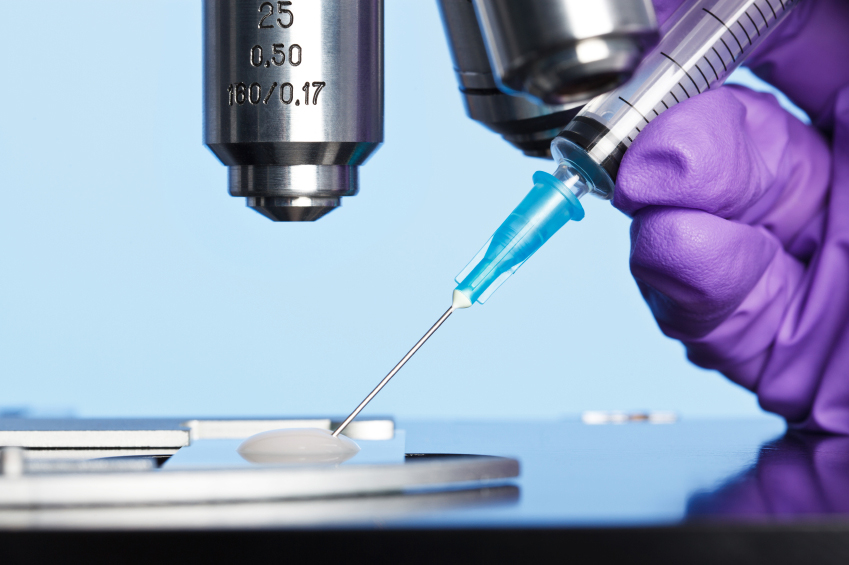Professor Samir Hamamah and his team (Inserm U1230, CHU Montpellier), concerned by the In-vitro Fertilisation (IVF) failure rate[1], have carried out a study involving 117 women, the results of which have just been published in the PlosOne journal.
These scientists claim they can “predict the success of medically assisted procreation in 88% of cases”by assaying a biological marker. This new marker evaluates “the quality of the mother’s oocytes” more reliably than the markers currently used. “In fact, the quality of the oocyte and its microenvironment affect the first moments in embryo development”, explains Professor Hamamah.
Regretting the fact that, in France, it is “impossible to routinely test for chromosomal abnormalities in embryos, contrary to the situation in English-speaking countries”, he is determined to “explore another avenue and find a good marker to reduce the number of attempts that result in failure and which have a high cost for medical establishments and institutions”.
Consequently, the research team is interested in DNA fragments “released in the circulation (blood and body fluids) following the destruction of cells”. The free level of DNA reflects “the quality of the follicular microenvironment (ovules) and therefore the chances of pregnancy”. This is a predictive factor with 88% reliability. It does not provide a solution for women with oocytes of a “poor quality”,but“since this marker varies with the cycles, it is possible to wait 2 to 3 months in order to obtain oocytes of a better quality”.
With this new test, Professor Hamamah is delighted to be able “to improve the choice of candidate embryos to be replaced in the womb or frozen with a view to deferred replacement” and “to have a better selection of cell material to increase couples’ chances of conceiving a child”. According to Inserm, “The pharmaceutical industry is already enthused by this concept and is approaching scientists”.
Note from Gènéthique : Professor Hamamah carried out research on human embryos in an attempt to “improve the outcome of in-vitro fertilisation”and to “identify embryo quality markers”(cf. Gènéthique du 9 juillet 2015). He had to suspend his investigations because, at the end of June, the administrative court of Paris highlighted the illegality of the authorisation granted to him by the Biomedicines Agency to conduct research(cf. Gènéthique du 25 juin 2015).
[1]“Currently, less than 2 IVF procedures out of 10 lead to pregnancy in France”.
Sciences & Avenir (15/09/2015) ; Inserm (14/09/2015)

